

Discover more from Jeffrey Rickman’s Substack
Methodist Nature: Anti-Worldly & Simple
Why we are supposed to be hostile to style, wealth, and status
With the formation of the Global Methodist Church, a reclaiming of the Methodist heritage is in order. Many voices are submitting ideas with respect to the particulars of Methodist identity. I have my own thoughts, which are being spelled out in a series of articles. This is the twelfth of at least twelve. You might read my introduction to this series first in order to know how I have thought through this project and why I care about it.
My concern in writing this article is that we need to purify the church. It is my contention that worldliness has made its way into the church and that, while we currently believe ourselves to be reclaiming our heritage, we are actually still allowing the world to make a happy home right in the middle of us. I believe many lack the discernment to see the wisdom in biblical warnings against vanity, and that if this goes untreated, then every iteration of the church that makes room for materialism will be fatally flawed from the outset. This is no small thing. This is at the heart, not just of Methodism, but of the true church.
Natural Man According to Science (and the Christian Faith)
I studied evolutionary psychology for a couple of years, reading and listening to various experts who explain human behavior through the lens of natural selection and sexual selection. These selective processes are like market forces on the animal kingdom, which these atheist thinkers see as inexorably linked to humanity. Or rather, they see humanity as otherwise enslaved to these market forces in the animal kingdom. Those who refuse to participate in natural selection and sexual selection will inevitably fail to reproduce, and their lines will end. Therefore authentic Christians look suicidal to them.
Natural selection dictates that each person is in competition with others. There are limited resources, so individuals must utilize whatever position, power, influence she has to hoard and retain what resources she can for her own children. Alliances are formed against common enemies, such that we might triumph over them. The accumulation of wealth, friends, status are all means of securing ourselves and our descendants against the forces of entropy that would otherwise undo us.
Sexual selection operates alongside these processes, although it can sometimes operate against it. For instance, although peacocks don’t want to be eaten by predators, and it would be advantageous to be camouflaged, they instead have loud and ostentatious plumage to attract a mate. The conspicuous accumulation of status symbols among humans signals a move towards claiming peak desirability for the opposite sex. The accumulation of fashionable clothes, fancy cars, the wearing of makeup and jewelry, the construction of opulent houses and gardens, the adoption of worldly trends…all of these things signal that an individual is prime mating material.
These phenomena persist among humans who are otherwise supposedly disinterested in these things. Actions, as we say, speak louder than words. These actions mean something, they are rooted somewhere. Outward manifestations of opulence, status, and fashion are participations in the animal kingdom. Even at the highest levels of the church, we see the animal kingdom reproduced when churches build big, fancy buildings, when their pastors and staff are paid ungodly sums of money, when they wear fancy, stylish clothing: peacocks strutting around on stage.
Natural man is, of course, born in a fallen state along with all the rest of Creation. We are indeed inducted into the animal kingdom as mere beasts. Were it not for the supernatural activity of Christ, we would be left forever in the dead end meaningless cycles of biological reproduction and death. Yet because of what Christ has done for us on the cross, and then sending his Spirit to us, he extends an escape from the meaninglessness of this life, freeing us for supernatural life in him. We are no longer called to be natural, but supernatural. This requires a death and rebirth, as Romans 6:3-4 and John 3:5-8 make clear.
Christians are freed from market forces of scarcity and competition, as well as from meaningless sexual desire and behavior. Our purpose in life is not to have a bunch of kids, accumulate a bunch of stuff, and be successful by worldly standards. Rather, as evidenced by the miraculous feeding events of Christ, our communities are no longer marked by scarcity, but by abundance. Rather than life being lived for the pleasure of the self, we are now reoriented to live primarily for God’s glory and secondarily for the benefit of all humanity. Essentially, the ways of the animal kingdom are to be reversed by authentic Christianity. We now gain pleasure and meaning, not in our own pursuits, but in God’s. Be wary of anyone who doesn’t know the difference between these things.
Essential & Nonnegotiable Christian Ethos
This is why Methodism, from the outset, was known for rejecting the things of this world. Of course, the primary framework for understanding this rejection was not based in modern scientific theory, but in biblical obedience. Scripture refers to all of these things of the world (money, status, companionship, property, influence) as ‘vanity.’ Read Ecclesiastes if you don’t know what I am talking about. The word ‘vanity’ means ‘meaningless.’ That is why, when a person is overly concerned about his appearance in our culture, he is often called ‘vain.’
“I desire therefore that the men pray everywhere, lifting up holy hands, without wrath and doubting; in like manner also, that the women adorn themselves in modest apparel, with propriety and moderation, not with braided hair or gold or pearls or costly clothing, but, which is proper for women professing godliness, with good works.
- 1 Timothy 2:8-10
““Do not lay up for yourselves treasures on earth, where moth and rust destroy and where thieves break in and steal; but lay up for yourselves treasures in heaven, where neither moth nor rust destroys and where thieves do not break in and steal. For where your treasure is, there your heart will be also.”
- Matthew 6:19-21
““Beware of the scribes, who desire to go around in long robes, love greetings in the marketplaces, the best seats in the synagogues, and the best places at feasts, who devour widows’ houses, and for a pretense make long prayers. These will receive greater condemnation.”
- Luke 20:46-47
“Now godliness with contentment is great gain. For we brought nothing into this world, and it is certain we can carry nothing out. And having food and clothing, with these we shall be content. But those who desire to be rich fall into temptation and a snare, and into many foolish and harmful lusts which drown men in destruction and perdition. For the love of money is a root of all kinds of evil, for which some have strayed from the faith in their greediness, and pierced themselves through with many sorrows.”
- 1 Timothy 6:6-10
“Come now, you rich, weep and howl for your miseries that are coming upon you! Your riches are corrupted, and your garments are moth-eaten. Your gold and silver are corroded, and their corrosion will be a witness against you and will eat your flesh like fire. You have heaped up treasure in the last days. Indeed the wages of the laborers who mowed your fields, which you kept back by fraud, cry out; and the cries of the reapers have reached the ears of the Lord of Sabaoth. You have lived on the earth in pleasure and luxury; you have fattened your hearts as in a day of slaughter. You have condemned, you have murdered the just; he does not resist you.”
- James 5:1-6
“Then Jesus said to His disciples, “Assuredly, I say to you that it is hard for a rich man to enter the kingdom of heaven. And again I say to you, it is easier for a camel to go through the eye of a needle than for a rich man to enter the kingdom of God.”
- Matthew 19:23-24
This is just a sampling of dozens more scriptures warning about the spiritual threat that desire for money, status, power…stuff…MAMMON has. The world is no friend to Christians. We are friends to the world only insofar as we call them to a holy way of life.
Jesus, Paul, the Apostles, and the entire first generation of Christianity was known for being relatively poor and unconcerned with worldly wealth and currency. For that, they were rewarded with the presence and power of the Spirit (and the hatred of the world). Or rather, the presence of the Spirit was evidenced by a complete rejection of worldliness. We would do well to consider their historic witness.
An Essential Facet of Methodism
This scriptural concern was ever before John Wesley’s eyes as he built the structure and culture of Methodism. In his later years, he was distressed at how easily Methodists fell into love of money, and the status that came with it. He wrote sermons like The Danger of Riches, Thoughts Upon Dress, Causes of the Inefficacy of Christianity, and The Use of Money out of this distress, warning of the corruption that had already taken root from the desire to be worldly.
The concern of Methodists about money was first seen not after the first generation got rich, but we rather find that they had the foresight to warn and plan against it from the outset. In The Nature, Design, and General Rules of Our United Societies (the General Rules), we have this warning within the first section on doing no harm:
“Doing what we know is not for the glory of God, as:
The putting on of gold and costly apparel.
The taking such diversions as cannot be used in the name of the Lord Jesus.
The singing those songs, or reading those books, which do not tend to the knowledge or love of God.
Softness and needless self-indulgence.
Laying up treasure upon earth.”
All of these things are connected, are they not? They are all connected to a worldview that presupposes that our lives are appropriately lived for our own status, pleasure, and material wellbeing. The world tells us that the music we enjoy, the things we wear, the way we spend our time…these things are not necessarily representative of our spiritual state. Early Methodists were compelled to know better.
Later generations knew that there was truth and power in this disposition against worldly wealth and status. In fact, it was explicitly fought for and protected for over a century:
“The first Doctrines and Discipline worked to protect Methodists from the ‘danger of riches’ through restrictions on overly fashionable dress or building overly ornate and expensive buildings. The rules on dress from British Methodism were part of the polity of the MEC, reprinted in each Doctrines and Discipline through 1846. The rule directed Methodist preachers to read John Wesley‘s ‘Thoughts upon Dress’ at least once a year in every society. Preachers were also instructed to not give class meeting tickets to ‘any, till they have left off superfluous ornaments’ or to ‘any that wear high heads, enormous bonnets, ruffles, or rings’… the direction in early MEC Doctrines and Discipline that churches be built ‘plain and decent; but not more expensively than is absolutely necessary’ was motivated by the same desire to avoid the entanglements of riches.
- Doctrine, Spirit, & Discipline by Kevin Watson, P. 148
That excerpt is from a section of Watson’s recent book in which he details the myriad ways in which American Methodism systematically and intentionally fell away from our first love. A bishop named Matthew Simpson was the first to openly desire worldly approval and wealth. This was tolerated by a rising elite within Methodism that protected him. Folks like B. T. Roberts saw this rank worldliness for what it was and began to speak loudly to warn the brethren. For that, he was eventually kicked out of his denomination. Many like him left. The Methodist Episcopal Church was thus given over to themselves. We inherit their mantle.
I have similarly received much hostility from many in my new chosen denomination as I have warned against signs of the love of money and status. The hysterics of many a GMC leader behind closed doors alleging that I want our clergy to live in poverty and misery is somewhat embarrassing in a nominally Methodist tribe. To be unable to afford a house in the rich part of town isn’t exactly living in poverty. But even if it were, would you not still be honored to serve Christ in such a capacity? It is one thing to tread out the grain and be able to eat in the process. It is another thing to live in worldly comfort and opulence. That modern Methodist leadership seems relatively unbothered by love of money in our ranks gives me cause for much concern. We claim we have the Spirit: why isn’t that resulting in a renewed concern about worldliness in our ranks?
This isn’t the sort of thing that is claimed rightly up front and then ignored. It is rather something that requires holy warfare in each generation. This battle has already taken place several times in Methodist circles. It is a theme that cannot be avoided in any Methodist history book. Watson comes to it time and again throughout the history of Methodist movements in America, striving to reclaim the power of the original movement. Here’s a quote from the Free Methodists that he lifts up on P. 309:
“When plainness, simplicity, and spirituality ceased to differentiate us from the worldly conformed masses and other churches, there will no longer be an excuse for our separate denominational existence.”
Who wants to publicly disagree with this? I think we all know this is true. We just don’t want to talk about it. Why?
Renouncing This World & Its Pleasures
Methodists from the beginning were aware of the allure of the flesh, the desire of the eyes, and how easily we humans are coopted and reenlisted to a worldly way of life. They designed a collective way of life that routinely asserted that nature of Methodism being opposed to the ways of the world.
Plainness and simplicity are principles that renounce conspicuous consumption. They eschew lightness and frivolity. They reinforce the sobriety and seriousness required for holy living.
In the 19th century, Methodism shifted from an otherworldly tradition to a mainline phenomenon. If you don’t recall or know, the word “mainline” comes (purportedly) from the Philadelphia Main Line, a group of affluent suburbs in that urban area. A movement that was initially associated with the working class, Methodism, was coopted for upper-middle class sensibilities and values. It remains an open question of if the Global Methodist Church is going to maintain this upper-middle class sensibility, or if it will allow for the primitive Methodist culture to return. I’m not sure how many of our leaders even know how to conceptualize that. The prevalence of luxury beliefs among our elite class evidences that we are not as free from the UMC as we might like to hope.
It is one thing to say that we are no longer of the flesh, but instead of the Spirit. It is quite another thing to actually live it. The basic practice Christians have always partaken of to renounce the flesh is regular fasting. Has that grown more common in the GMC? Are we more prone to wear plain and cheaper clothing? To minimize our presentation so as to avoid distracting others? To purchase affordable and reused materials for their function rather than their class status? Are we more prone to share than hoard? Are we ruled by scarcity and fear or abundance and confidence?
The Order of Franciscans was started as a mendicant movement of poor monks within the Roman Catholic Church. They were so successful in their spiritual labors that eventually they were rewarded with material goods. The entire order, which was built against the love of money, eventually fell prey to it.
This is how Satan has always worked. The strength of Methodism used to be that we could name where the evil one was acting in society and then stand together against him. I feel like it is the duty of every student of the bible and of history to reclaim this moment for this ethos of simplicity for Methodists once again. I just don’t see how we can expect to see the power of the Spirit move through us again if we are still enthralled to the world in these ways.
The Culture We Stand Against
Contemporary Western culture is thoroughly materialist. Marxism really did a number on us. We are consumeristic and self-referential. We allow subjective feelings to determine reality. We make more money than we need to buy more stuff than we need. We give ourselves over to the seven deadly sins as though they are virtues. We waste. Oh God, we waste so much. And we feel entitled to it. We bless our society even as it commits seppuku in slow motion…
Plainness and simplicity are needed to do holy warfare against a culture of consumerism and opulence. Working hard and diligently does holy warfare against a lazy and entitled generation. Modesty defeats the spiritual powers of wickedness that seek to cheapen us, debase us, in presenting ourselves as sexual objects. It also saves us from the temptation to use our wealth for our own glory rather than God’s. Honesty is perhaps our most powerful weapon against the prince of this world, refusing the participate in the lies of this world, even if it costs us dearly. These things are all interconnected in the spiritual warfare we are expected to collectively do against the powers and principalities. The presence of the Spirit should confirm the threat of these worldly forces to undo us, renewing a desire for this ethos to stand firm in the Lord.
I want a principle within
of watchful, godly fear,
a sensibility of sin,
a pain to feel it near.
I want the first approach to feel
of pride or wrong desire,
to catch the wandering of my will,
and quench the kindling fire.
- A Tender Conscience by Charles Wesley
A sober understanding of these things, a faithful anthropology and hamartiology, will render the firm conclusion that the church cannot flirt with evil in these ways. Seeking the comfort, wealth, and status of this world leads inexorably to idolatry and pride. This path leads to death. If we imagine ourselves so exceptional as to avoid the pitfalls of love of money despite the thousands of years of failed history witnessing against us, then I have nothing good to say about that. We are not exceptional. The witness of the Spirit is not that we can dance with the devil and not get burned. It is a renewed conscience that keeps us from all evil.
I pray that the world might again know the presence of a set of true believers whose desire for the Lord discounts any desire for the things of this world. The world needs a picture of a beloved community that fears and loves only God, such that we can renounce any concern for mammon. It is only when believers are willing to suffer and die for the faith that the world sees the true value of the church. We have been such a people before. I pray we can reclaim such a heritage now…





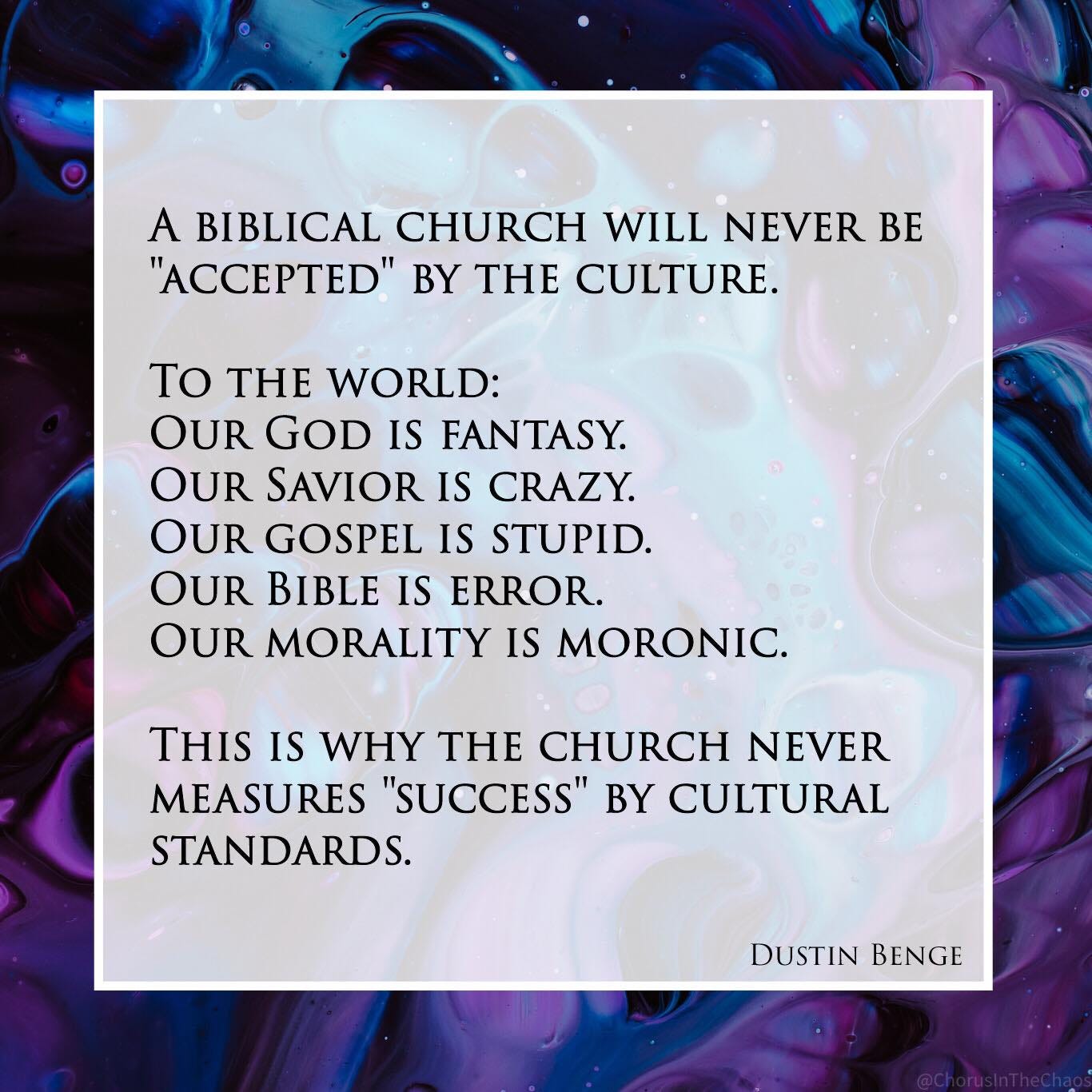
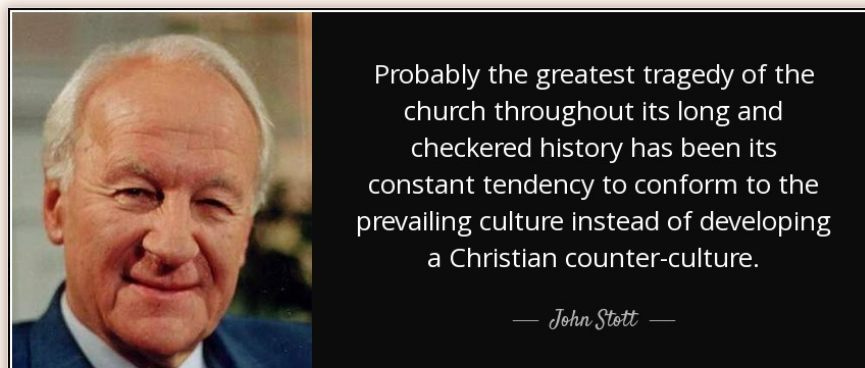
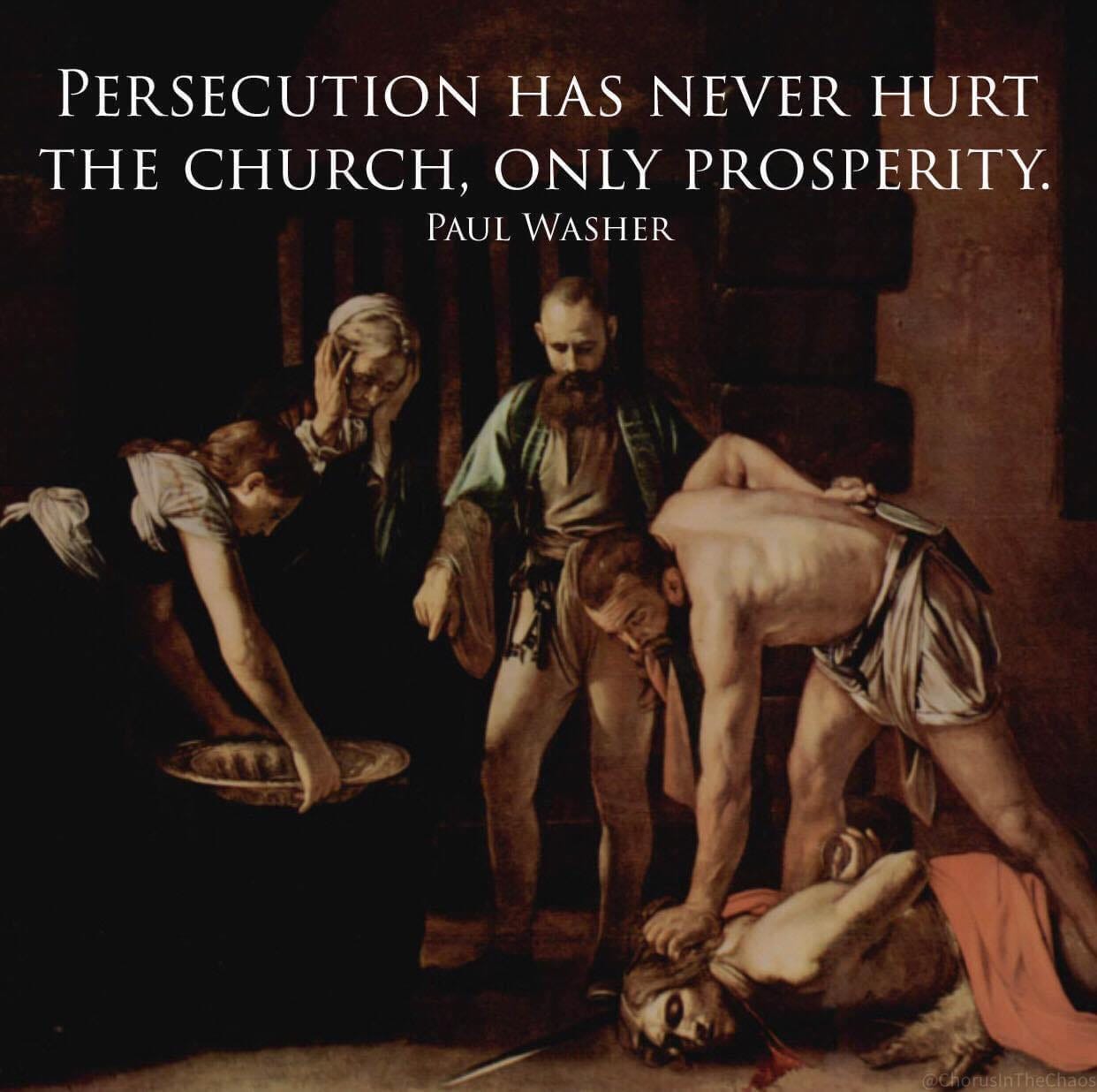
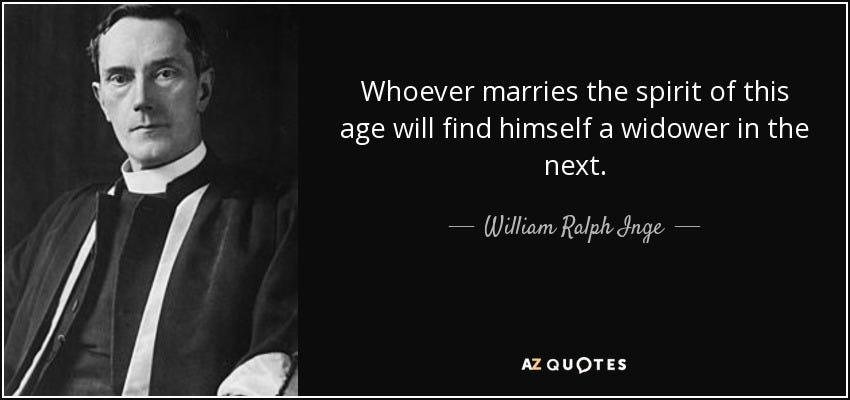
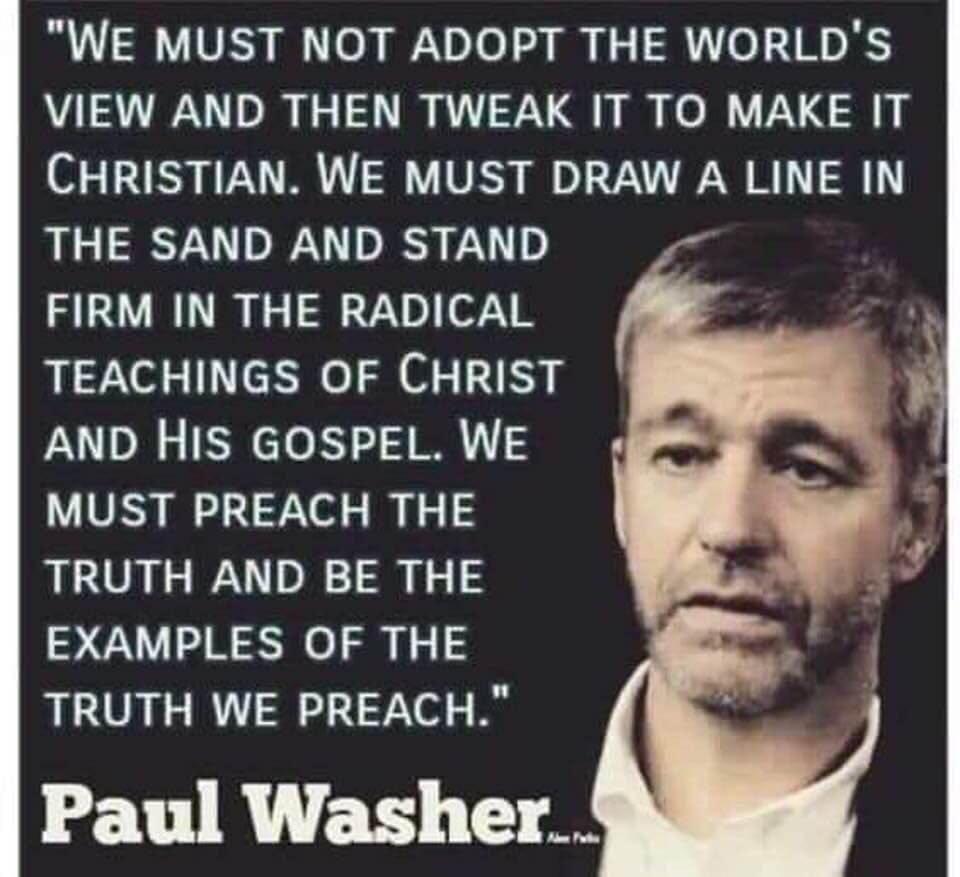

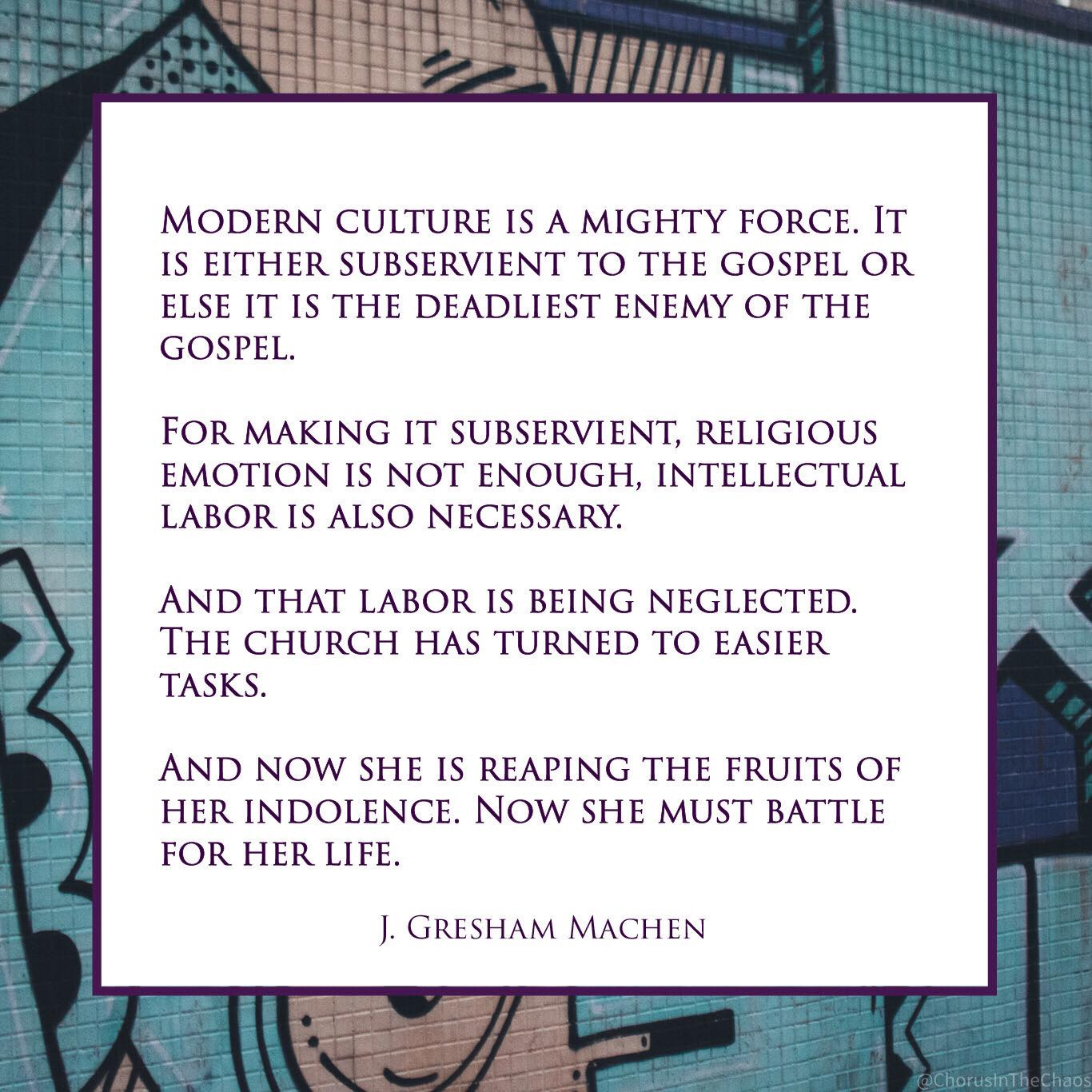


Jeremiah Burroughs.....nice! Great read!
I agree with your analysis that the church more often reflects the marks of its surrounding culture rather than being the salt and the light unto the world. In addition to chasing after the things of this world, many of our modern church practices can also be traced back to the pagan culture that surrounded the early churches, especially from the post-apostolic period forward. We assume that these church practices were instituted by the apostles, but many of these now common practices were drawn from either the Old Covenant or Greco-Roman culture. You may already be familiar with it, but there’s a book entitled Pagan Christianity, co-authored by Frank Viola and George Barna that well documents the source of many of these extra-Biblical practices. While some of these are neutral, others serve as a hindrance to the full ability of the Church to advance the Kingdom of God. The more egregious practices were corrected due to the Protestant reformation, but there are still some that need correction to enable the Church to live up to its full potential as the mature stature of Christ.